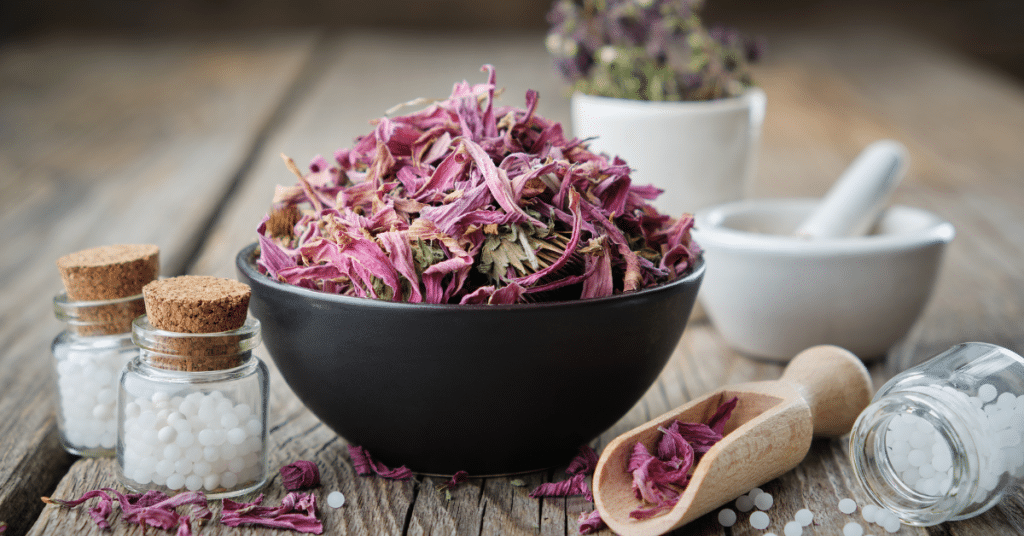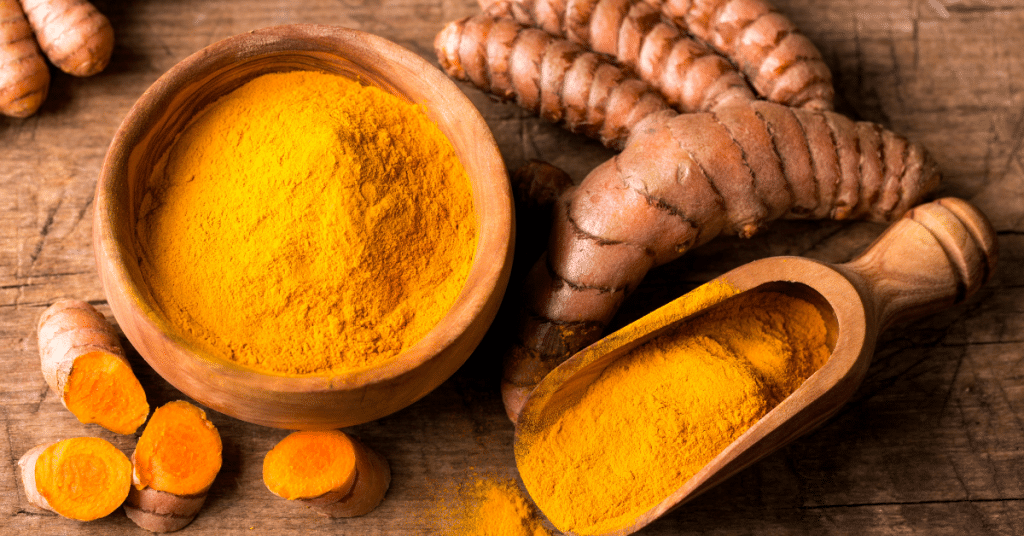As cold and flu season rolls around, many peopl turn to over-the-counter meds to combat the usual sniffles, coughs, and sore throats. However, natural remedies, especially herbal supplements, have been used for centuries to strengthen the body’s immune defences. If you’re after a more holistic approach this season, adding herbs into your routine can provide the immune-boosting power you need to stay strong. In this blog, we discuss five powerful herbal remedies – Echinacea, Elderberry, Quercetin with Bromelain, Astragalus, and Turmeric – that can help you stay resilient and healthy during cold and flu season.
Cold and Flu Medication – Not Always the Answer
While cold and flu medications can offer quick relief from symptoms like congestion and headaches, they often only mask the problem rather than address the root cause. Many over-the-counter drugs come with side effects such as drowsiness, dizziness, or an upset stomach, and some people may experience a dependency on them. Additionally, these medications often target just one symptom, leaving other concerns, like a weakened immune system, unchecked.

If you’re looking for a more natural and holistic approach, herbal remedies may provide a gentle solution without the typical side effects.
Herbal Supplements for Immune Health
Herbal remedies are natural solutions made from plants that have been used for centuries to support overall health. They work by boosting your body’s natural defenses and keeping everything balanced, rather than just treating symptoms like many over-the-counter medications. Herbs can help strengthen your immune system, reduce inflammation, and even fight off infections, offering a gentler, more natural way to stay healthy during cold and flu season. If you’re looking for something that works with your body rather than against it, herbal remedies might be the answer.
Our recommended herbs to help your body stay strong and resilient during cold and flu season:
Echinacea

Echinacea is a popular herb known for boosting the immune system. It works by increasing white blood cell production, helping the body fight infections and reducing the duration and intensity of cold and flu symptoms. Studies suggest that taking Echinacea at the first sign of illness can help shorten recovery time.
Suggested Usage: Take as a supplement, tincture, or tea when you start feeling under the weather. Some people take it daily as a preventative measure during cold and flu season.
Elderberry

Elderberry is packed with antioxidants and has strong antiviral properties, making it a go-to for cold and flu relief. Elderberries are rich in flavonoids, which can help reduce inflammation and protect cells from viral invasion. Studies have shown that elderberry syrup can reduce the length of flu symptoms by up to four days.
Suggested Usage: You can take Elderberry as a capsule or tea. Take it at the onset of cold symptoms or as a preventative throughout the season.
Quercetin with Bromelain

Quercetin is a natural flavonoid which you find in lots of fruits and veg. It’s known for its potent antioxidant and anti-inflammatory properties, and when paired with bromelain, an enzyme from pineapples, this powerful combo can support the immune system by reducing inflammation. It also provides relief from seasonal allergies. Quercetin can help combat common cold symptoms by stabilizing cells that release histamine, thus reducing congestion and irritation.
Suggested Usage: Take one capsule 1-2 times daily between meals to support your immune system and keep seasonal symptoms at bay.
Astragalus

Astragalus is a lesser-known herb that packs a serious punch for the immune system. It helps stimulate white blood cell production, which makes it easier for your body to fight off infections. Astragalus is also great for boosting energy and reducing stress, which can be particularly helpful when you’re feeling run down.
Suggested Usage: You can take Astragalus in capsule, tincture, or tea form. Use it as a preventative measure to keep your immune system strong during cold and flu season.
Turmeric

Turmeric is known for its vibrant yellow colour and powerful anti-inflammatory effects. It helps reduce inflammation, which can relieve symptoms like a sore throat or body aches. Turmeric also supports overall immune function and can speed up recovery after the flu.
Suggested Usage: Add Turmeric to your diet by incorporating it into recipes or taking it as a supplement. Drinking a warm turmeric latte or golden milk is a comforting way to boost your immune system during flu season.
Conclusion
It’s essential to be proactive in supporting your immune system before cold and flu season hits. While over-the-counter medications have their place, incorporating natural herbal remedies into your routine can offer a gentler, more holistic approach to staying healthy. Echinacea, Elderberry, Quercetin with Bromelain, Astragalus, and Turmeric offer loads of benefits, from boosting immunity and reducing inflammation to helping your body fight infections more effectively.
FAQs
Can I take herbal supplements with over-the-counter cold medicine?
Yes, you can take many herbal supplements alongside over-the-counter medications, but we always recommend consulting with a health professional.
How long should I take herbal remedies during cold and flu season?
It depends on the herb and its purpose. Some, like Echinacea, are best taken at the first sign of symptoms and for a short period, while others like Astragalus can be taken daily throughout the season for ongoing immune support.
Do herbal remedies have side effects?
Most herbal remedies are well-tolerated when taken as directed, but some people may experience mild side effects like stomach upset or allergic reactions. Always check with a healthcare professional if you’re unsure or have pre-existing health conditions.
